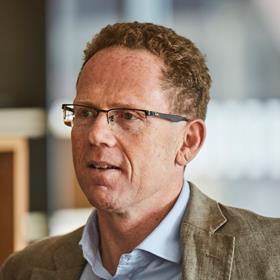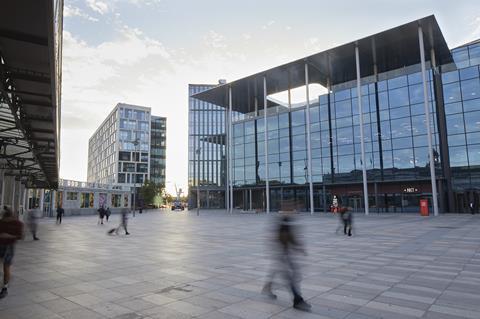Despite years of austerity, the state and public sector is indebted on a grand scale. The hundreds of billions of pounds the government spent to support public services, households and business during the pandemic has caused the government deficit to reach a peacetime record.

Brexit also means that direct EU funding has been lost and we are importing less talent, so we will need to educate and organically and sustainably train it ourselves to produce creativity and innovation. Against this background, having long-term capital to invest in what society needs right now has never been more important.
In the built environment, society needs social infrastructure to meet local need and contribute to quality of life. Part of that is transport and renewable energy, the delivery of which is a huge challenge in terms of investment. The transition to net zero by 2050 also requires massive investment in retrofitting assets and capital spending on new infrastructure.
Plenty of urban areas in need of regeneration have historically not benefited from large-scale private investment. In many of these cases, over the past decade, L&G has brought partnership models, expertise and capital to stimulate mixed-use redevelopment.
Central Square in Cardiff is a good example of what patient investment can achieve; our activity there was ‘levelling up’ the area long before the phrase became fashionable.

The 12-acre site outside the main station has transformed people’s first impressions of the city. The project has delivered the impressive BBC Cymru Wales studio and an HQ for HMRC in Wales (pictured), plus retail space.
Another major milestone was the opening of the 170-bedroom Parkgate Hotel next to the Principality Stadium in October. The final phase of the regeneration project includes a bus station, 318 BTR homes and the 120,000 sq ft Interchange office building.
The biggest issue for us is to ensure that there is a productive and impactful public-private sector partnership. Both sides need to focus on engagement, enabling the best provision of medium- and long-term economic plans. As we come out of the pandemic, the recipe for success involves less competition between places, or through superfluous procurement processes, and more leadership and collaboration.
These ingredients will determine how to boost jobs, support digital infrastructure and growth businesses, address health inequality and tackle the growing crisis in housing and climate change.
Good-quality places that are intra- and inter-connected are crucial to support the UK’s economic position, fuelling growth and ensuring inclusivity. Engaging with the right type of patient capital in a constructive way will allow progress to be made on building the productive net zero society of the future. It will crystallise the government’s ambitions to bring forward projects that have a positive impact on the built environment and urban areas, and ultimately on the people of Britain.
Bill Hughes is head of real assets for LGIM






























No comments yet